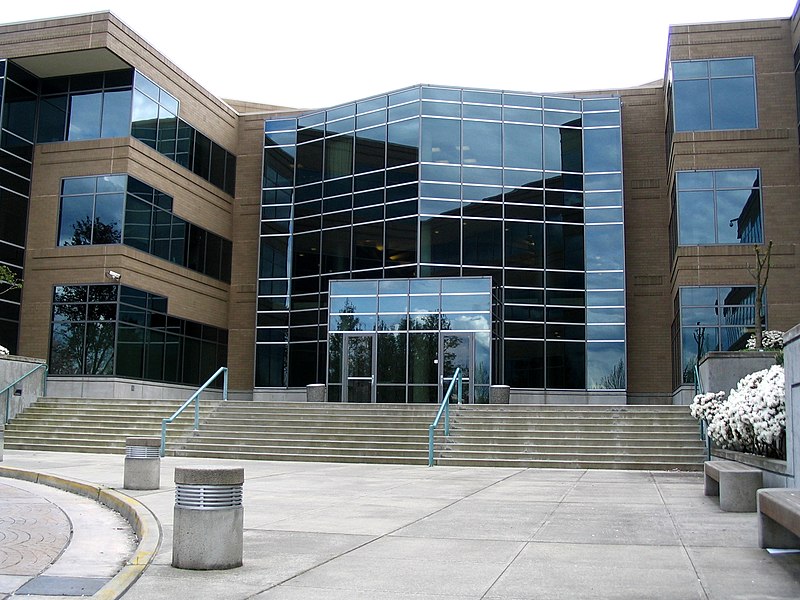While looking through their email in the De Anza College library students only need to worry about eyes peering over their shoulders, not whether the U.S. government is searching their data.
 |
| Front lobby entrance of building 17 on Microsoft's campus in Washington. |
In April, Microsoft sued the U.S. government for the right to tell its customers when their emails are being searched by federal agencies. Citing abuse of the First Amendment right to freedom of speech and Fourth Amendment right for people and businesses to be aware of government searches or seizes of property.
Microsoft also claimed using the Electronic Communications Privacy Act (ECPA), a 30-year-old law, needs to be reformed as digital data moves from physical hardware to the cloud. Microsoft voted to introduce reforms to the ECPA that would require disclosure of a warrant to service providers who retain the right to notify users.
"I would like to know if my privacy was being breached, but I can see how it could be problematic for people to be warned about government searches," said Janet Do, 23, an accounting major. "If people get warned, then they'll try to strip any incriminating evidence like Hillary Clinton did."
While digital data can be erased, freshman Michael Demuir, 19, said that there will, “Always be some sort of rogue hero like Julian Assange that will release archives of lost data."
 |
| Edward Snowden, former CIA employee who leaked classified information from the NSA. |
Demuir said it is important for younger generations to think about the Internet as more than Facebook, but to realize that it can be used for fighting injustices.
"We shouldn't forget about Edward Snowden so soon," Demuir said.
"We shouldn't forget about Edward Snowden so soon," Demuir said.
Microsoft is only one of many big technology companies that are fighting over how much access the government should have to digital data. Recently, Apple refused to help the FBI unlock an encrypted iPhone used by the San Bernardino shooter that killed 14 and injured 22 people in December of last year.
Apple argued that cooperating with the government would turn businesses into arms of the state.
"I kind of like the idea of tech giants flipping off the government," said Aron Nguyen, 26, a nursing student. Nguyen said he values his digital privacy a lot and would be concerned if a stranger were tracking his online movements especially the government.
"I think the government should comply with demands from these big companies because they're so important to our economy," said Anna Thacker, 22, a business major.
Thacker noted how these companies produce a lot of technology that is essential to the government and that they should work together.
"The thing is, our technology is constantly evolving. We went from writing letters, to emails and text messages," said Brian Folsom, 22, a computer science major, "We can't expect a 30-year-old law to still work when we get iOS software updates almost every two months.”
Folsom said companies like Microsoft and Apple should have a say in legislation over digital privacy because they understand the needs of their clients and since it is their software, they know how much they are willing to give away for government use.
"I think it's interesting though. We went from a country that was against secret searches, secret courts and secret wars,” Nguyen said. “Now we're exactly that.”
No comments:
Post a Comment